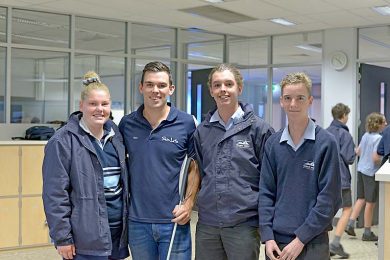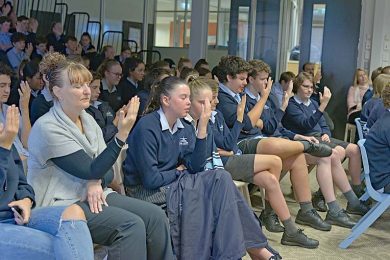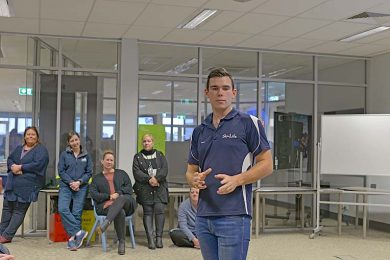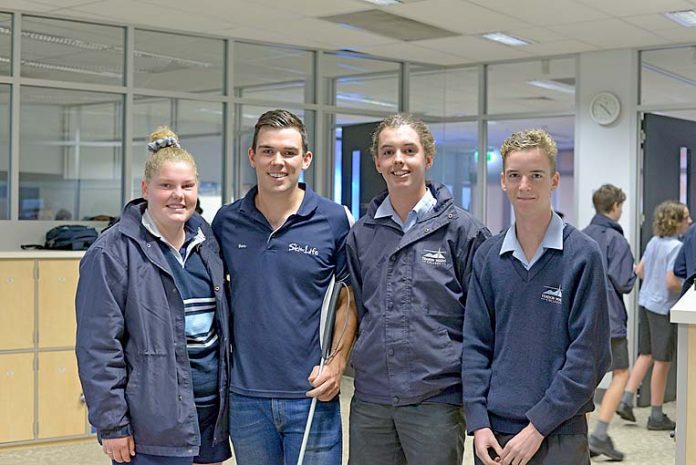
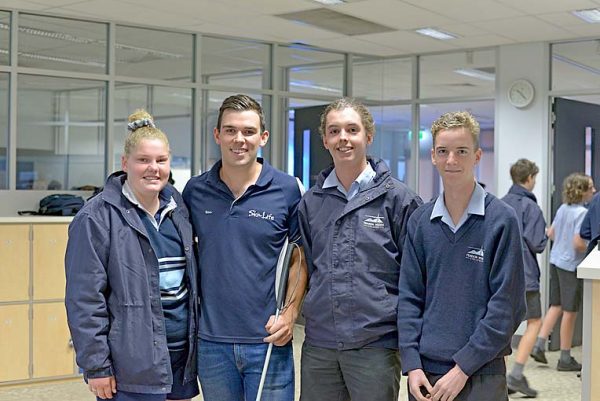
BEN Pettingill was like any ordinary 16 year old.
An active, outgoing teen, he loved sports and spending time with his friends.
However his world was turned upside down when, without warning, he lost 98pc of his sight.
For Ben it was a case of going to bed fine and waking the next morning to find himself in permanent darkness.
Now 23, the motivational speaker and mental health awareness advocate travels across the country to share his “life is limitless” message.
Spiralling to his lowest point, Ben said he was initially in denial when told he would be blind for the rest of his life after he was diagnosed with a rare genetic syndrome, Lebers Hereditary Optic Neuropathy.
When he realised his nightmare was an incurable reality he made a choice to change his mindset, defining the rest of his life.
Last week, Ben visited the Limestone Coast and told his inspiring story at five high schools and the Sir Robert Helpmann Theatre.
Ben said he survived by talking about depression and negative thoughts, adding that through his mission he hoped to continue the conversation surrounding mental health.
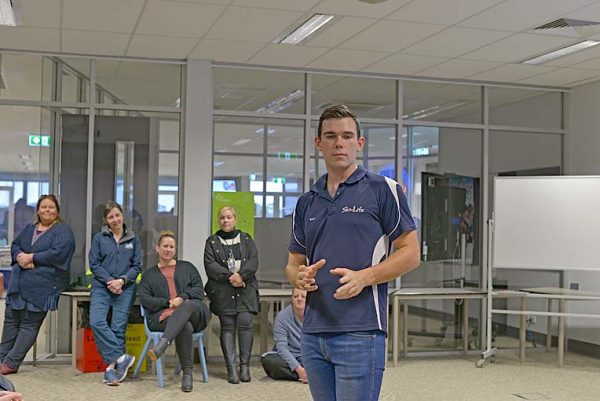
“Speaking up is not a sign of weakness, it is a strength,” he said.
“I want people to look at mental health issues as something they are not ashamed of.
“The way I think of it is if you break a bone the first thing you do is go to the hospital.
“Mental health is the same, why should we be hesitant to seek help?
“My key message is there is no limit, you need to reach out and have that support behind you, learn from it and pass on the practice.”
Since Ben lost his sight he has definitely proved there was no limit and has not allowed his disability to define him, having walked the Kokoda Trail twice, competed in a Spartan obstacle course untethered and water-skied the Southern 80, the fastest water skiing race in the world.
Wattle Range Suicide Prevention Group member Brooke Littlewood said Ben’s story reinforced that conversation surrounding mental health and suicide was vital.
“The unfortunate side of stigma surrounding these topics is that people feel ashamed to seek help when they need it,” she said.
“Many people internalise their feelings of shame because of the way they believe they will be viewed by society.
“This should not be the case, let’s choose empowerment over shame.”
Ms Littlewood said as conversation around mental health grows, the suicide prevention network aimed to fill the gap in suicide bereavement and prevention.
“We will continue to raise awareness and take positive steps in support of the community by providing a platform to engage in vital conversation,” she said.
“If we work together we can reduce the stigma and discrimination.
“There is nothing to be ashamed of, there are people who are willing to listen and there is support available.”


